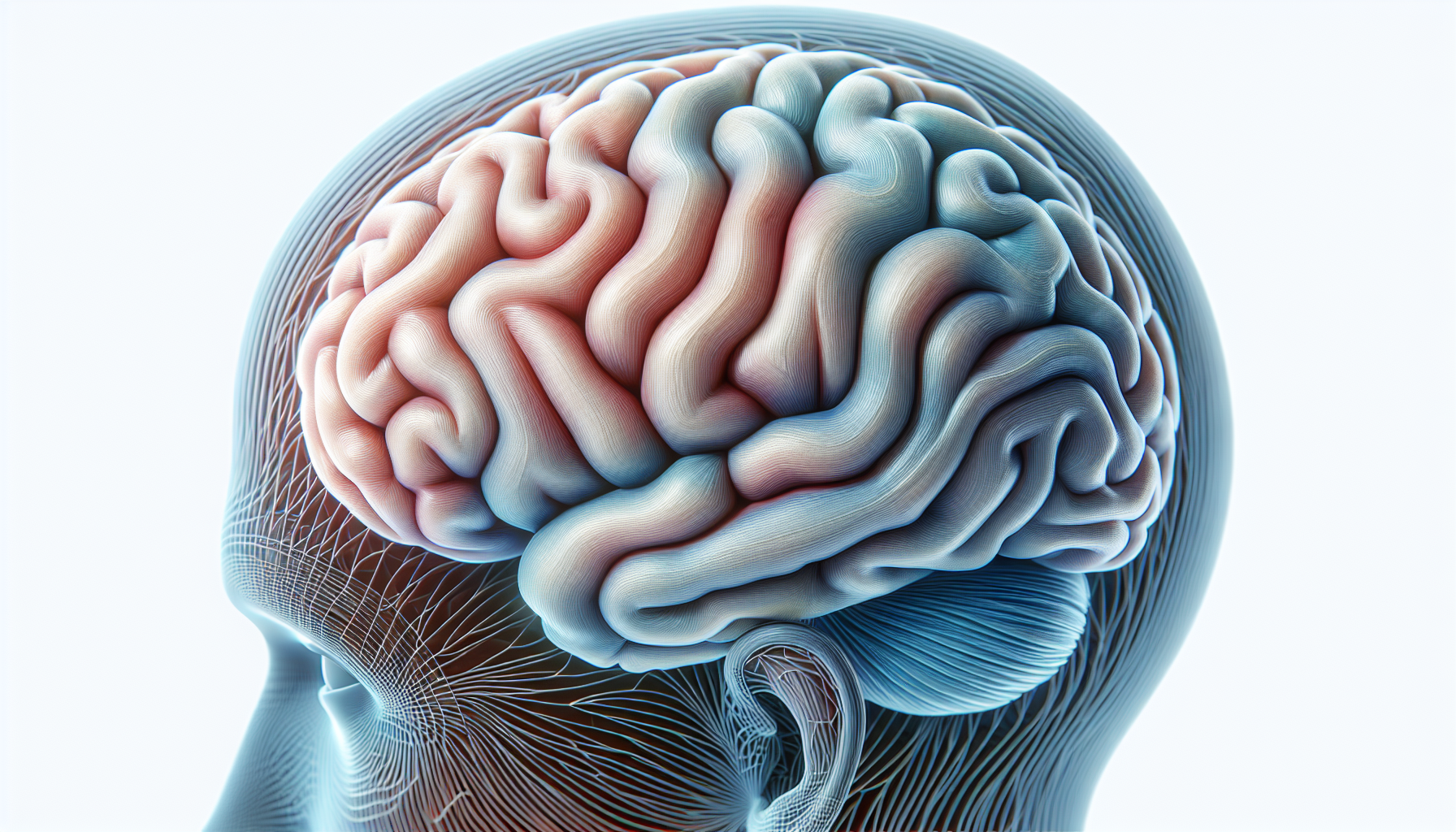Are you curious about the impact of the keto diet on brain health and cognitive function during weight loss? Well, you’re in the right place! In this article, we’ll explore the fascinating connection between the keto diet and the brain. Many people are turning to the keto diet as a means to shed excess pounds, but what are the potential effects on your brain? Join us as we dig deeper into this topic and discover the potential benefits and risks that the keto diet might have on brain health and cognitive function during weight loss.
Understanding the Keto Diet
What is the keto diet?
The keto diet is a low-carbohydrate, high-fat diet that aims to shift your body into a state of ketosis. Ketosis occurs when your body doesn’t have enough carbohydrates to use for energy, so it starts breaking down fats for fuel. This metabolic state can lead to weight loss and a range of potential health benefits.
How does the keto diet work?
When you follow a keto diet, you limit your carbohydrate intake to around 20-50 grams per day, which is significantly less than the recommended daily intake. By reducing your carb intake, your body is forced to find an alternative source of energy. It turns to fat stored in your body and starts breaking it down into molecules called ketones. These ketones then become the main source of energy for your body and brain.
Common foods included in the keto diet
The keto diet primarily consists of high-fat foods, moderate amounts of protein, and very low levels of carbohydrates. Some common foods included in the keto diet are:
- Avocados: These healthy fruits are a great source of healthy fats and fiber.
- Meat and poultry: Including fatty cuts of meat and poultry like bacon, chicken thighs, and fatty fish, such as salmon.
- Eggs: Highly nutritious and versatile, eggs are a staple in the keto diet.
- Low-carb vegetables: Leafy greens like spinach, kale, and lettuce, as well as cruciferous vegetables like broccoli and cauliflower.
- Nuts and seeds: Almonds, walnuts, chia seeds, and flaxseeds are all high in healthy fats and low in carbs.
- High-fat dairy: Cheese, butter, and cream are commonly consumed on the keto diet.
- Oils and fats: Olive oil, coconut oil, and avocado oil are healthy fats used in cooking and meal preparation.
It is important to note that the exact foods and quantities can vary based on personal preferences and specific dietary needs.
Effect of the Keto Diet on Weight Loss
Changes in the body during a keto diet
During a keto diet, your body undergoes several changes that contribute to weight loss. As your carbohydrate intake is limited, your insulin levels decrease. Decreased insulin levels result in the release of stored fat from your fat cells, making it available for energy. Additionally, ketones suppress appetite, leading to a reduced calorie intake.
Keto diet and fat reduction
The keto diet is particularly effective in promoting fat reduction. By significantly reducing carbohydrate intake, your body shifts into ketosis, a state in which it burns fat for fuel instead of carbohydrates. This transition allows your body to tap into fat stores and burn them for energy, leading to significant weight loss.
How long does it take for weight loss to occur on a keto diet?
Weight loss on a keto diet can vary from person to person. Some individuals may experience rapid weight loss in the first week or two due to water weight loss. However, for sustainable fat loss, it may take a few weeks to a few months, depending on factors such as initial weight, body composition, and adherence to the diet.

Keto Diet and Brain Health
Does the keto diet improve brain function?
Research suggests that the keto diet may have a positive impact on brain function. By providing an alternative fuel source in the form of ketones, the keto diet may enhance cognitive function, focus, and mental clarity. Some individuals report improved concentration and increased energy levels while following a keto diet.
Influence of ketones on brain health
Ketones not only serve as an energy source for the brain but also have other potential benefits for brain health. Ketones have been shown to possess neuroprotective properties, meaning they may help protect brain cells from damage and improve overall brain health. They may also reduce inflammation in the brain, which has been linked to various neurological disorders.
Studies linking the keto diet and brain health
Multiple studies have explored the relationship between the keto diet and brain health. Some research suggests that the keto diet may have potential benefits for conditions such as Alzheimer’s disease, Parkinson’s disease, and epilepsy. However, more research is needed to fully understand the long-term effects and potential risks of the keto diet on brain health.
Keto Diet and Cognitive Function
Does the keto diet impact cognitive performance?
The impact of the keto diet on cognitive performance is still a topic of debate among researchers. While some individuals report improved mental clarity and focus when following a keto diet, there is limited scientific evidence to support these claims. Some studies suggest that individuals may experience temporary cognitive decline, commonly known as “keto fog,” during the initial stages of adapting to a keto diet.
The brain on ketones: focus and memory
Ketones are a more efficient and sustainable energy source for the brain compared to glucose. Some proponents of the keto diet argue that this steady supply of ketones can improve focus and memory. However, more research is needed to fully understand the specific effects of ketones on cognitive function and whether they translate into improved performance.
Understanding ‘keto fog’
“Keto fog” refers to a temporary condition that some individuals experience when transitioning to a keto diet. It is characterized by symptoms such as brain fog, fatigue, and difficulty concentrating. This cognitive decline is believed to be a result of the body’s adjustment to using ketones as its primary fuel source. Fortunately, these symptoms often diminish as the body adapts to the keto diet, and individuals may experience improved cognitive function in the long run.
Keto Diets and Diseases
Keto diets in the management of neurological conditions
The keto diet has shown promise in the management of various neurological conditions. One of the most well-known applications of the keto diet is in the treatment of epilepsy, particularly in children. The diet has been shown to reduce the frequency and severity of seizures in some individuals.
Keto diet and epilepsy
The ketogenic diet was initially developed in the 1920s as a treatment for epilepsy, and it continues to be a recognized therapy today. The precise mechanisms behind how the keto diet helps reduce seizures are still not fully understood. However, researchers believe that the production of ketones in the body may play a role in stabilizing brain activity.
Keto diet and Alzheimer’s disease
Emerging research suggests that the keto diet may have potential benefits for individuals with Alzheimer’s disease. Alzheimer’s is characterized by a reduced ability of the brain to use glucose for energy. As the keto diet relies on ketones for fuel rather than glucose, it may provide an alternative energy source for the brain, potentially helping to improve cognitive function in individuals with Alzheimer’s disease. However, more research is needed to fully understand the efficacy and long-term effects of the keto diet on Alzheimer’s disease.
Potential Side Effects of Keto Diet on Brain Health
Short-term side effects of keto on the brain
As the body transitions into ketosis, some individuals may experience short-term side effects related to brain function. These can include brain fog, fatigue, irritability, and difficulty concentrating. These symptoms often subside as the body adapts to the keto diet, but they can be challenging to manage during the initial phase.
Long-term effects of ketogenic diet on cognitive function
While the long-term effects of the keto diet on cognitive function are still being studied, some concerns have been raised. Prolonged adherence to a strict keto diet without proper nutrient balance and variety could potentially lead to nutrient deficiencies, which may indirectly impact cognitive function. It is important to work with a healthcare professional or registered dietitian to ensure you are receiving all the necessary nutrients while following a keto diet.
Coping with negative impacts of keto on the brain
If you experience negative impacts on brain function while following a keto diet, there are several strategies you can try to cope with them. These include gradually easing into the diet instead of abruptly switching, ensuring proper hydration, consuming a variety of nutrient-dense foods, and ensuring you are meeting your individual nutritional needs through balanced meal planning.

Understanding Ketosis
Definition of ketosis
Ketosis is a metabolic state in which your body primarily relies on ketones for energy instead of glucose. It occurs when your carbohydrate intake is significantly reduced, and your body starts breaking down fat for fuel. The production of ketones provides an alternative energy source for the body and initiates various physiological changes.
Benefits of ketosis on the brain and body
Ketosis offers several potential benefits for both the brain and body. These include improved energy levels, reduced inflammation, increased fat burning, and potential neuroprotective effects. By entering ketosis, individuals may also experience more stable blood sugar levels, reduced hunger, and improved insulin sensitivity.
Ketosis versus ketoacidosis
It is crucial to distinguish between ketosis and ketoacidosis, as they are two different metabolic states with distinct implications for health. Ketosis is a natural physiological process that occurs in response to a low-carbohydrate diet. On the other hand, ketoacidosis is a potentially dangerous condition that can occur in individuals with uncontrolled diabetes. It is characterized by extremely high levels of ketones and blood sugar, which can be life-threatening and requires immediate medical attention.
Research on Keto Diet and Cognitive Function
Research supporting keto diet’s impact on cognition
Several studies have explored the potential effects of the keto diet on cognitive function. While the research is still in its early stages, some studies have shown that the keto diet may improve cognitive performance in specific populations, such as those with Alzheimer’s disease or epilepsy. These studies suggest that the diet may have neuroprotective effects and potentially enhance cognitive function.
Critiques and limitations of existing research
Despite the promising findings, it is important to acknowledge the limitations of existing research on the keto diet and cognitive function. Many studies have small sample sizes or rely on self-reported data, which can introduce bias. Additionally, the long-term effects and potential risks of following a strict keto diet for an extended period are still not fully understood. Further research with larger, well-designed studies is needed to provide more robust evidence.
Future directions for research on keto diet and brain health
Given the growing interest in the keto diet and its potential impact on brain health, there is a need for more research in this area. Future studies should aim to investigate the long-term effects, optimal diet composition, and potential risks of the keto diet on cognitive function. Additionally, research should explore the individual variabilities in response to the diet and identify any potential contraindications or adverse effects.
Role of the Dietician in Keto Diet
Importance of dietician’s guidance in keto diet
The role of a registered dietitian is crucial when embarking on a keto diet. They can provide personalized nutrition guidance, ensure nutritional adequacy, and help address any potential nutrient deficiencies. Dietitians can also help individuals set realistic goals, monitor progress, and offer support throughout the journey, ultimately maximizing the potential benefits of the keto diet while minimizing any potential risks.
Evaluating individual needs for a keto diet
A registered dietitian can evaluate individual needs and medical history to determine whether a keto diet is appropriate and safe. They can assess existing health conditions, medications, and lifestyle factors that may affect the success and safety of the diet. A personalized approach is essential to ensure the keto diet is tailored to an individual’s specific needs and goals.
A registered dietitian’s tips for a balanced keto diet
Here are some tips a registered dietitian may provide for maintaining a balanced keto diet:
- Focus on nutrient-dense foods: Include a variety of non-starchy vegetables, quality protein sources, and healthy fats in your meals to ensure you are getting a wide range of essential nutrients.
- Stay hydrated: Adequate hydration is crucial, especially during the initial stages of ketosis. Drink plenty of water and consider adding electrolytes to maintain proper hydration and electrolyte balance.
- Monitor your macros: Keep track of your macronutrient intake to ensure you are within the appropriate range for the keto diet. Balancing your fat, protein, and carbohydrate intake is crucial for achieving and maintaining ketosis.
- Consider supplementation: Some nutrients may be lacking in a keto diet. A registered dietitian can help identify any potential gaps in your nutrient intake and recommend appropriate supplements if necessary.
- Listen to your body: Pay attention to how your body responds to the keto diet. If you experience any negative symptoms or adverse effects, consult with a healthcare professional or registered dietitian to make necessary adjustments.
Physical Activity and the Keto Diet
Exercise’s impact on the effectiveness of the keto diet
Physical activity can complement the keto diet and may enhance the effectiveness of weight loss. Exercise helps increase energy expenditure, improve insulin sensitivity, and promote lean muscle mass. Incorporating regular physical activity into your routine can further support fat loss and overall health benefits associated with the keto diet.
Best exercises to combine with a keto diet
When following a keto diet, a variety of exercises can be beneficial, depending on individual preferences and fitness levels. Some exercises that are often recommended to complement the keto diet include:
- Resistance training: Using weights or resistance bands to build and maintain muscle mass.
- High-intensity interval training (HIIT): Alternating between short bursts of intense exercise and recovery periods to maximize calorie burn.
- Low-intensity steady-state cardio: Activities such as walking, jogging, or cycling at a steady pace to promote cardiovascular health and aid in weight loss.
- Flexibility and mobility exercises: Incorporating stretching and mobility exercises to improve flexibility, prevent injury, and promote overall well-being.
Choosing exercises that you enjoy and can stick to long-term is key to maintaining an active lifestyle while following a keto diet.
Understanding energy levels on a keto diet during workouts
During the initial stages of transitioning to a keto diet, it is common to experience a decrease in energy levels during workouts. This is primarily due to the body’s adaptation to using ketones as its primary fuel source. However, as the body becomes more fat-adapted, energy levels tend to improve. Some individuals may also find that they have sustained energy throughout the day due to the stable blood sugar levels associated with the keto diet.
In conclusion, the keto diet has gained popularity for its potential effects on weight loss and various aspects of brain health and cognitive function. While more research is needed to fully understand the long-term effects and potential risks, the keto diet, when followed with guidance from a registered dietitian, can be a viable option for those seeking to lose weight, manage certain neurological conditions, or potentially improve cognitive function. Remember to listen to your body, work with a healthcare professional, and prioritize a balanced approach to nutrition and physical activity.


